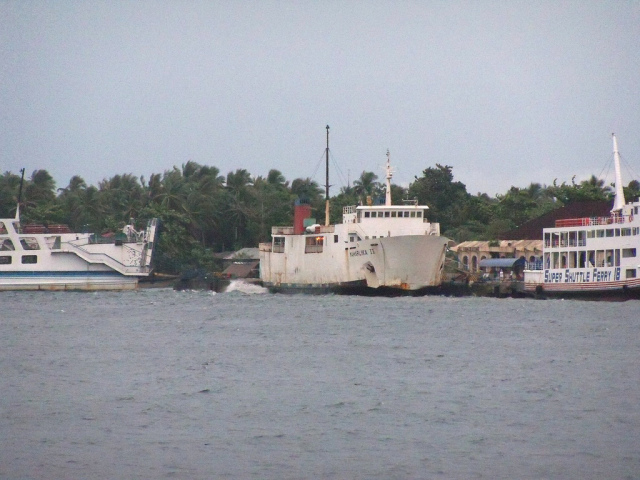Breaking
Official says: Maharlika 2 should have been retired in 2009

The MV Maharlika 2 (Photo from Flickr / shipwrecklog.com)
SURIGAO CITY, Philippines – The ill-fated M/V Maharlika 2 did not just sink because of bad fortune; but, as it turns out, because of bad judgment.
An official of the Maritime Industry Authority (MARINA) disclosed yesterday that the vessel should have been retired five years ago because it was already well-beyond the 25 years designated as its serviceable lifespan.
Emmanuel Carpio, MARINA director for Caraga region, noted that that the Maharlika 2 was built 30-years ago, in 1984, in Mariveles, Bataan. He stated that the ship should have been retired in 2009, “because serving that long affects seaworthiness, thus compromising safety.”
“Seaworthiness of ships, or any means or mode of transportation, also depends on the kind of maintenance it gets. And since it is costly – I think the kind of ro-ro (roll on-roll off) vessel like Maharlika 2 if bought brand new will now cost around P100 million – some passenger vessel operators really had to make the most out of its usefulness before they will be replaced by new or refurbished vessel,” Carpio explained.
“This is a reality in Philippine maritime setting as of now, that’s why we in MARINA see to it that passenger and cargo vessels are checked regularly so as not to compromise safety of passengers,” he added.
The M/V Maharlika 2 went under off Panaon Island in Southern Leyte on Saturday evening.
Eight of its passengers perished in the sinking.
Another vessel from the fleet, the Maharlika 4, was suspended from its operations due to significant hazards, noted by Carpio as follows: “These are expired license of the chief marine engineer, heavy corrosion of the ship’s watertight bulkheads, incomplete checklist of machineries maintenance system and non-functioning fire alarm system and deflection system”
According to the maritime director, both the Maharlika 2 and 4 are government-owned; specifically, by the Department of Public Works and Highways (DPWH) and the Department of Transportation and Communications (DOTC).
“In 1995, DPWH turned over ownership, supervision and management of these passenger vessels to DOTC,” Maharlika said.





















